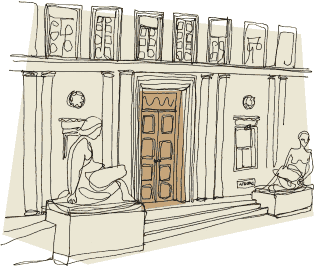The organization
The WTO’s overriding objective is to help trade flow smoothly, freely, fairly and predictably.
It does this by:
Administering trade agreements
Acting as a forum for trade negotiations
Settling trade disputes
Reviewing national trade policies
Assisting developing countries in trade policy issues, through technical assistance and training programmes
Cooperating with other international organizations

Structure
The WTO has about 160 members, accounting for about 95% of world trade. Around 25 others are negotiating membership.
Decisions are made by the entire membership. This is typically by consensus. A majority vote is also possible but it has never been used in the WTO, and was extremely rare under the WTO’s predecessor, GATT. The WTO’s agreements have been ratified in all members’ parliaments.
The WTO’s top level decision-making body is the Ministerial Conferencewhich meets at least once every two years.
Below this is the General Council (normally ambassadors and heads of delegation in Geneva, but sometimes officials sent from members’ capitals) which meets several times a year in the Geneva headquarters. The General Council also meets as the Trade Policy Review Body and the Dispute Settlement Body.
At the next level, the Goods Council, Services Council and Intellectual Property (TRIPS) Council report to the General Council.
Numerous specialized committees, working groups and working partiesdeal with the individual agreements and other areas such as the environment, development, membership applications and regional trade agreements.
Secretariat
The WTO Secretariat, based in Geneva, has around 640 staff and is headed by a director-general. Its annual budget is roughly 197 million Swiss francs. It does not have branch offices outside Geneva. Since decisions are taken by the members themselves, the Secretariat does not have the decision-making role that other inter

The Secretariat’s main duties are to supply technical support for the various councils and committees and the ministerial conferences, to provide technical assistance for developing countries, to analyze world trade, and to explain WTO affairs to the public and media.
The Secretariat also provides some forms of legal assistance in the dispute settlement process and advises governments wishing to become members of the WTO.
The WTO’s overriding objective is to help trade flow smoothly, freely, fairly and predictably.
It does this by:
Administering trade agreements
Acting as a forum for trade negotiations
Settling trade disputes
Reviewing national trade policies
Assisting developing countries in trade policy issues, through technical assistance and training programmes
Cooperating with other international organizations

Structure
The WTO has about 160 members, accounting for about 95% of world trade. Around 25 others are negotiating membership.
Decisions are made by the entire membership. This is typically by consensus. A majority vote is also possible but it has never been used in the WTO, and was extremely rare under the WTO’s predecessor, GATT. The WTO’s agreements have been ratified in all members’ parliaments.
The WTO’s top level decision-making body is the Ministerial Conferencewhich meets at least once every two years.
Below this is the General Council (normally ambassadors and heads of delegation in Geneva, but sometimes officials sent from members’ capitals) which meets several times a year in the Geneva headquarters. The General Council also meets as the Trade Policy Review Body and the Dispute Settlement Body.
At the next level, the Goods Council, Services Council and Intellectual Property (TRIPS) Council report to the General Council.
Numerous specialized committees, working groups and working partiesdeal with the individual agreements and other areas such as the environment, development, membership applications and regional trade agreements.
Secretariat
The WTO Secretariat, based in Geneva, has around 640 staff and is headed by a director-general. Its annual budget is roughly 197 million Swiss francs. It does not have branch offices outside Geneva. Since decisions are taken by the members themselves, the Secretariat does not have the decision-making role that other inter
national bureaucracies are given.

The Secretariat’s main duties are to supply technical support for the various councils and committees and the ministerial conferences, to provide technical assistance for developing countries, to analyze world trade, and to explain WTO affairs to the public and media.
The Secretariat also provides some forms of legal assistance in the dispute settlement process and advises governments wishing to become members of the WTO.

No comments:
Post a Comment